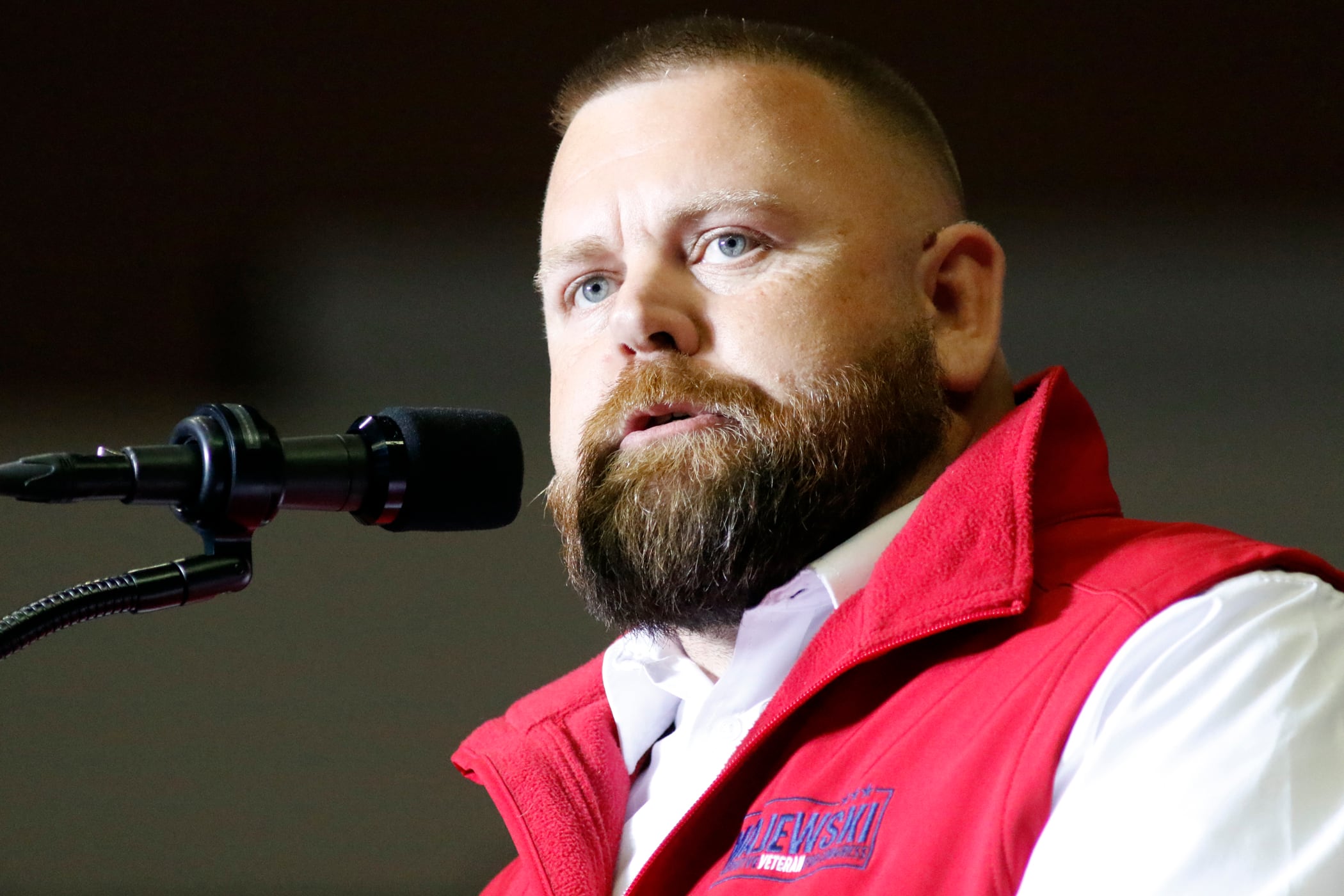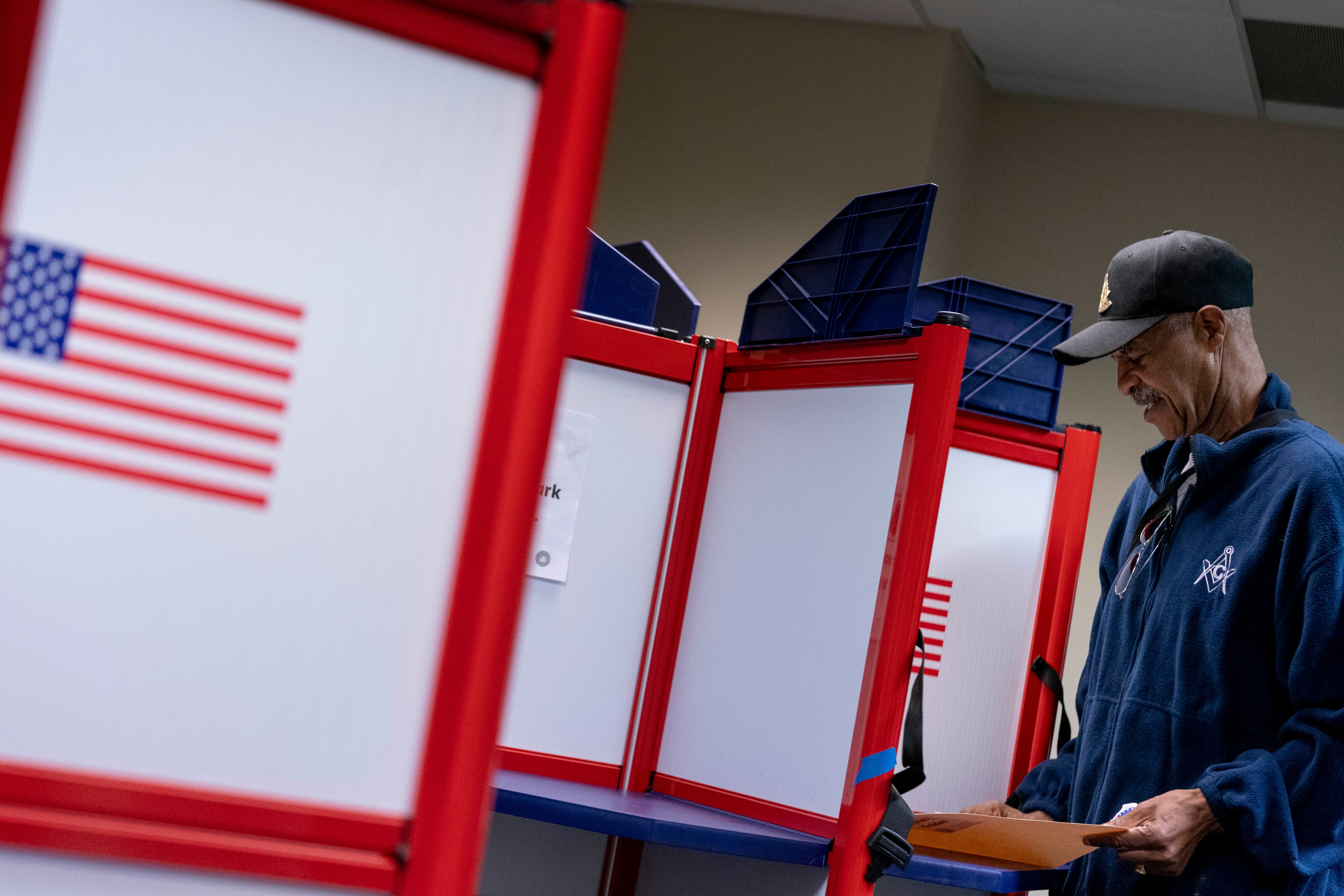Republican veterans running for Congress are less likely than other GOP candidates to reject the results of the 2020 presidential election, but slightly more than half of the vets on the ballot this cycle still have questioned President Joe Biden’s victory.
The list includes individuals such as Derrick Van Orden of Wisconsin, a House candidate who participated in the Jan. 6, 2021, rally that culminated in the attack on the U.S. Capitol by supporters of President Donald Trump; Don Bolduc of New Hampshire, a Senate candidate who has tried to backtrack on earlier campaign claims that the 2020 vote was “stolen;” and more than 30 incumbent veterans who voted against certifying the election results.
Claims that Biden’s win was flawed or the result of election cheating have been extensively investigated over the last two years by journalists, court officials and a host of special interest groups. Despite Trump’s public statements that he actually won the election, no credible evidence has been presented to back up those allegations.
However, at least 70 veterans are among the 244 Republican “election deniers” on the ballot this fall, as identified in a recent Washington Post analysis. That’s more than half of the 128 veterans vying for House and Senate seats.
RELATED

The news organization identified candidates as deniers if they have made public statements questioning President Joe Biden’s election win, opposed the counting of 2020 electoral college vote results, or expressed support for a partisan post-election ballot review.
Among Republican candidates with no military background, more than two thirds (69%) were classified as election deniers. Only about 55% of GOP candidates who are veterans fell into that category.
But despite the lower percentage, the figures show that military experience — often touted as giving candidates a more responsible and balanced approach to government service — has not insulated congressional hopefuls from some of the most divisive political rhetoric in America today.
“Veterans are like the rest of Americans in many respects,” said Peter Feaver, a professor of political science at Duke University who specializes in civil-military relations.
“Problems that show up in the rest of America — drug dependency, suicide, political extremism or, in this case, embracing false conspiracy theories about the 2020 election — are bound to show up in the veteran population, too.”
Defining election denial
Bolduc, a former Army brigadier general who served 10 tours in Afghanistan and received two Purple Hearts, drew headlines last month when he attempted to distance himself from previous election denial comments after winning the New Hampshire Republican primary.
In an August debate, he said he stood by earlier statements that “Donald Trump won the election.” After his primary win, however, Bolduc said during a Fox News interview that “I’ve done a lot of research on this … the election was not stolen.”
RELATED

Critics charged that the abrupt turnaround was little more than a cynical attempt to cater to more moderate voters in advance of the general election.
Grant Reeher, director of the Campbell Public Affairs Institute at Syracuse University, said that’s a political conundrum facing voters across the country this campaign cycle.
“It’s notable that these people, whether we’re talking about veterans or we’re talking about nonveterans, are willing to say this,” he said. “But I’m not convinced that, that tells me that they actually believe it.
“I’m not surprised to see these numbers, because I think candidates feel if they’re on the Republican side that they’ve got to say this.”
The issue becomes even more complicated with incumbent members of Congress who voted against certification, with many saying they had concerns about unspecified (and thus far, unproven) improprieties in how the election was handled but not outright calling the entire result fraudulent.
Many candidates have avoided giving straight answers to the question of who won the 2020 election, hoping the ambiguity will help them pick up votes on both sides of the debate.
Feaver said that veteran candidates following suit and leaning into the election denial talking points is not surprising, even if it is dismaying.
“Certainly, more experienced military leaders should know enough about how the government actually works to spot all the obvious flaws in the conspiracy theories peddled about the 2020 election,” he said.
“Whether they actually believe the conspiracy nonsense or are only cynically pretending to do so is less clear, though certainly some seem sincere.”
RELATED

For example, House candidate Anna Paulina Luna of Florida, an Air Force veteran, in recent months has spread unsubstantiated claims about voting machines being compromised in the 2020 election. House candidate Erik Aadland of Colorado, an Army vet, said in a 2021 speech to local party members that presidential results were “absolutely rigged.”
Van Orden, a former Navy SEAL, who served in Iraq and Afghanistan, has defended his appearance at the Jan. 6 “Stop the Steal” rally in Washington, D.C., and insisted that he never crossed any police lines as the event evolved from a protest to a riot.
Democrats opposing Van Orden’s candidacy have sought to make his claims an issue in the race, with mixed success. The race in Wisconsin is seen as a key battleground for control of the House, with Van Orden leading in recent polls.
Even if his bid is unsuccessful, the issue of the election denial controversies is likely to play a sizable role in the next Congress. Of the 70 veteran Republican candidates in that group, 43 are running in districts considered safe wins for the GOP, according to data from the Cook Political Report.
Leo covers Congress, Veterans Affairs and the White House for Military Times. He has covered Washington, D.C. since 2004, focusing on military personnel and veterans policies. His work has earned numerous honors, including a 2009 Polk award, a 2010 National Headliner Award, the IAVA Leadership in Journalism award and the VFW News Media award.





